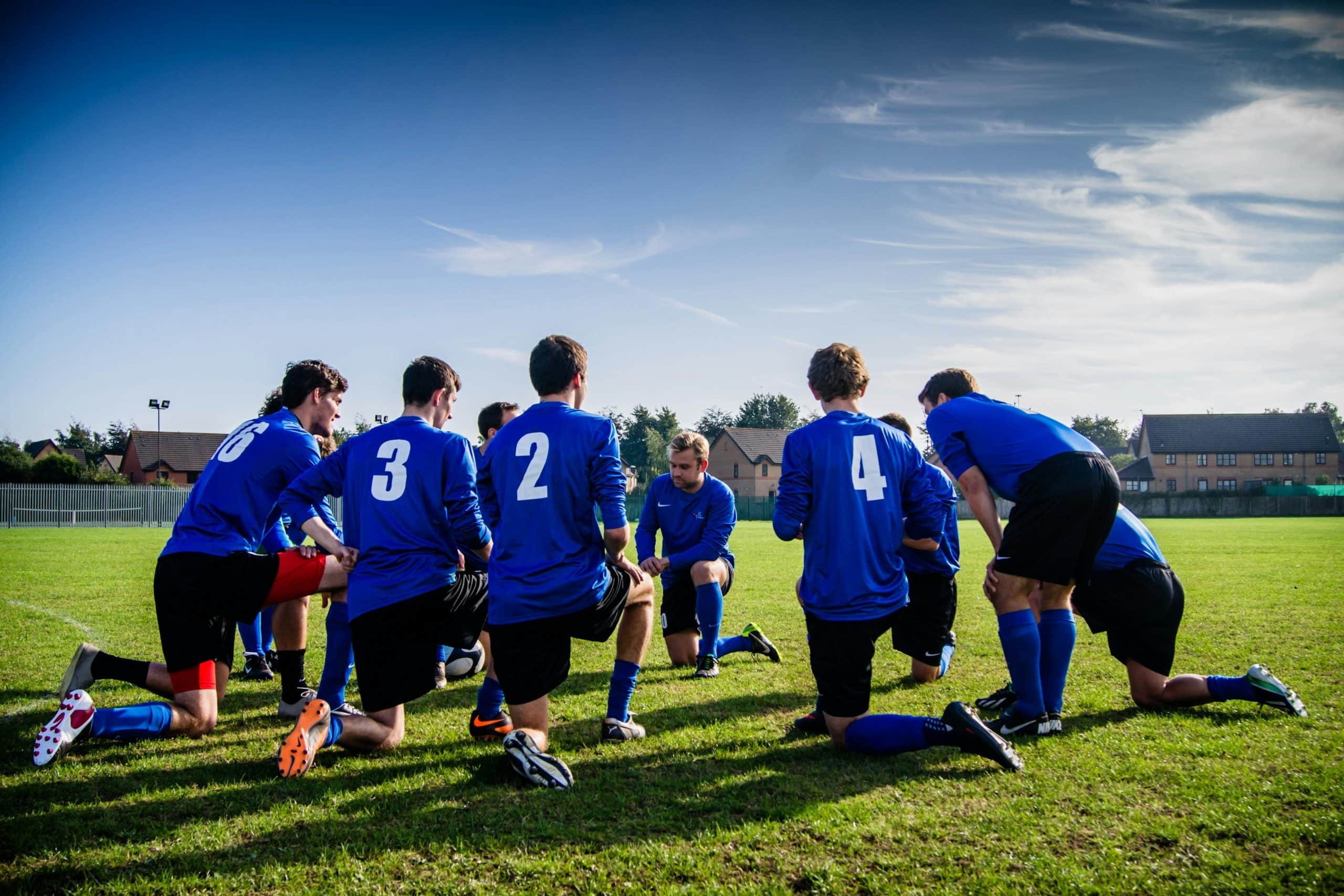Being an adolescent athlete is no small feat. It means having to balance the trials of youth with the rigorous demands of sports. One key aspect that determines the performance and health of young athletes is nutrition. Proper nutrition is essential for energy, growth, and overall wellbeing. It is particularly critical for teenage athletes engaged in full contact sports such as football or wrestling, where physical exertion is at its peak. Let’s delve deeper into the specific nutritional requirements for these young sportspeople.
The Importance of Protein
Protein is a vital nutrient for athletes. It facilitates the repair and growth of muscle tissues, which can undergo significant strain during intense training sessions. For teenage athletes, particularly those engaged in contact sports, their protein requirements are higher than their non-athletic counterparts.
This might interest you : How Can Wearable Muscle Oxygen Monitors Improve Training for Cross-Country Skiers?
An adequate protein intake is crucial in supporting the growth and repair of body tissues. It’s also essential in maintaining a healthy immune system, which can help athletes stay fit and reduce the risk of injury. Foods rich in protein include lean meats, dairy products, eggs, and plant-based sources like beans, lentils, and nuts.
However, it’s not just about the quantity of protein intake but also about the timing. Eating protein-rich foods immediately after exercise can enhance muscle recovery and growth. This can lead to improved athletic performance over time.
Additional reading : How Do Elite Sprinters Structure Their Training for Maximum Acceleration?
Keeping Energy Levels High
Energy is the lifeblood of any athlete. It powers their performance and sustains them through long, gruelling training sessions. For this reason, an athlete’s diet should be rich in energy-dense foods.
Carbohydrates are the primary source of energy for athletes. They are quickly converted into glucose, which the body uses in energy production. Teenage athletes engaged in high-intensity training or full-contact sports should therefore ensure that their diet is high in carbohydrates.
However, it’s not just about consuming high amounts of carbohydrates, but also about choosing the right types. Complex carbohydrates found in foods like whole grains, fruits, and vegetables are more beneficial as they release energy slowly, maintaining steady energy levels throughout training and competition.
The Role of Fat in Athletic Performance
While it’s commonly understood that high-fat diets can contribute to health issues like obesity and heart disease, it’s essential to remember that not all fats are created equal. Some fats, especially unsaturated fats, play a crucial role in maintaining an athlete’s health.
Fats serve as a secondary source of energy, particularly for endurance events. They help in the absorption of fat-soluble vitamins like Vitamins A, D, E and K, which are crucial for bone health, immunity, and blood clotting.
Foods rich in healthy fats include avocados, nuts, seeds, oily fish, and olive oil. Including these in an athlete’s diet can help promote overall health and also enhance athletic performance.
Iron and the Athlete’s Body
Iron is a vital nutrient for athletes, particularly adolescent girls who are at a higher risk of iron deficiency. Iron is critical for the production of hemoglobin, a protein in red blood cells that transports oxygen to the body’s tissues.
In sports, especially full contact ones, oxygen transport becomes even more critical. Low iron levels can lead to fatigue, decreased immunity, and reduced athletic performance. Foods rich in iron include red meat, poultry, fish, and iron-fortified cereals.
The Balance of Hydration and Electrolytes
Last but not least, hydration plays a pivotal role in an athlete’s health and performance. It’s not just about drinking plenty of water, but also about maintaining electrolyte balance. Sodium, potassium, and chloride are electrolytes that help regulate fluid balance, nerve function, and muscle contractions.
During intense training and competition, sweating can lead to considerable fluid and electrolyte loss. Hence, rehydrating with water and sports drinks that contain electrolytes is crucial for replacing lost fluids and maintaining optimal performance.
To sum it up, meeting the nutritional requirements of adolescent athletes is a complex, yet manageable task. It requires understanding the unique needs of these young athletes and tailoring a diet that fuels their bodies, supports growth, and promotes peak performance. A balanced intake of proteins, carbohydrates, fats, iron, and maintaining hydration are critical to their overall health and athletic success.
Dietary Supplements and Their Role
The world of dietary supplements can be difficult to navigate, especially for young athletes. There’s a lot of information and products available, but not all are suitable for adolescents engaged in full-contact sports. It’s important to know which ones can support an athlete’s nutritional needs.
Before considering dietary supplements, it’s essential to remember that food should be the primary source of nutrients for athletes. Supplements are just that – supplemental. They are designed to fill nutritional gaps that cannot be met by diet alone.
Protein powders and bars can be useful for athletes who struggle to meet their protein intake needs through food. However, they should not replace whole foods, which provide a balance of essential nutrients.
Creatine is another popular supplement among athletes. It’s known to enhance performance, particularly in high-intensity, short-duration activities like sprinting or weight lifting. However, its use in teens is still a topic of debate in the sports nutrition community, and it should be used only after consulting a healthcare professional.
For young athletes experiencing heavy menstrual cycles, iron supplements might be necessary to prevent deficiency. But again, it’s important to speak to a healthcare provider before starting any supplement regimen.
Other supplements that may be recommended include multivitamins to ensure a well-rounded nutrient intake and sports drinks for maintaining hydration and electrolyte balance during physical activity.
The Role of Adequate Rest and Recovery
While nutrition is important for an athlete’s performance, so is rest. It is during periods of rest that the body recovers, repairs tissue, and builds strength. A lack of adequate rest can lead to poor performance, increased injury risk, and a compromised immune system.
To ensure the best recovery, young athletes should aim for 8-10 hours of sleep per night. Additionally, they should incorporate rest days into their training schedule to allow their bodies to recover.
Post-workout nutrition also plays a vital role in recovery. Consuming a combination of protein and carbohydrates within 30 minutes of training can aid in muscle recovery and replenish energy stores.
Conclusion
Nutrition is a crucial element in the life of a teenage athlete, particularly those involved in full-contact sports. It fuels their bodies, supports growth, and enhances performance. However, it’s not just about the food they eat but also when and how much they consume.
Meeting the nutritional needs of these athletes involves a balanced intake of proteins, carbohydrates, and healthy fats. It’s also important to ensure an adequate intake of iron and maintain proper hydration and electrolyte balance. Dietary supplements can be useful to fill nutritional gaps, but they should not replace a balanced diet.
Lastly, adequate rest and recovery are just as important as nutrition for optimal performance. By paying attention to both nutrition and rest, young athletes can look forward to a balanced and successful sporting career.
The world of sports nutrition can be complex, but with the right knowledge and guidance, teenage athletes can thrive both on and off the field.











